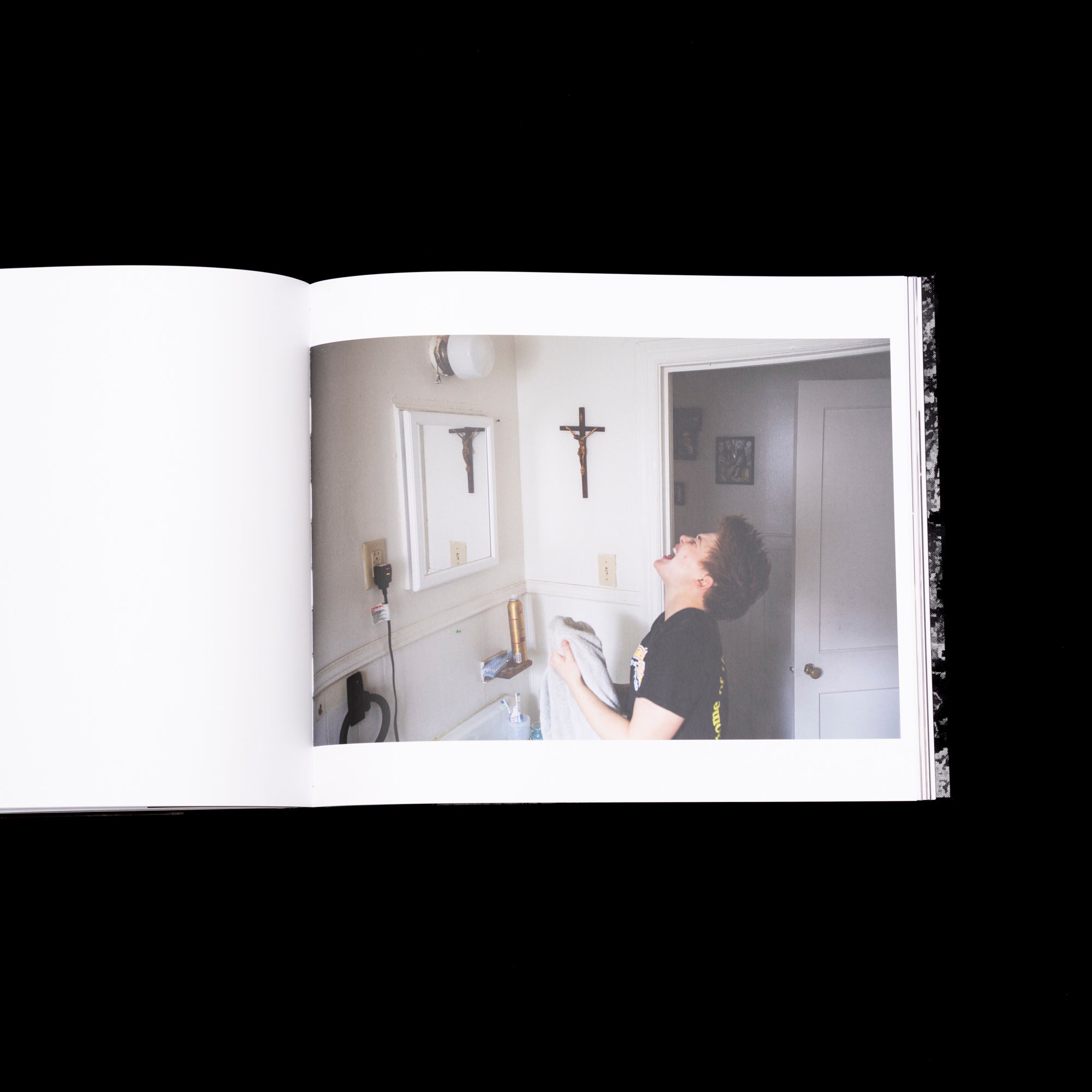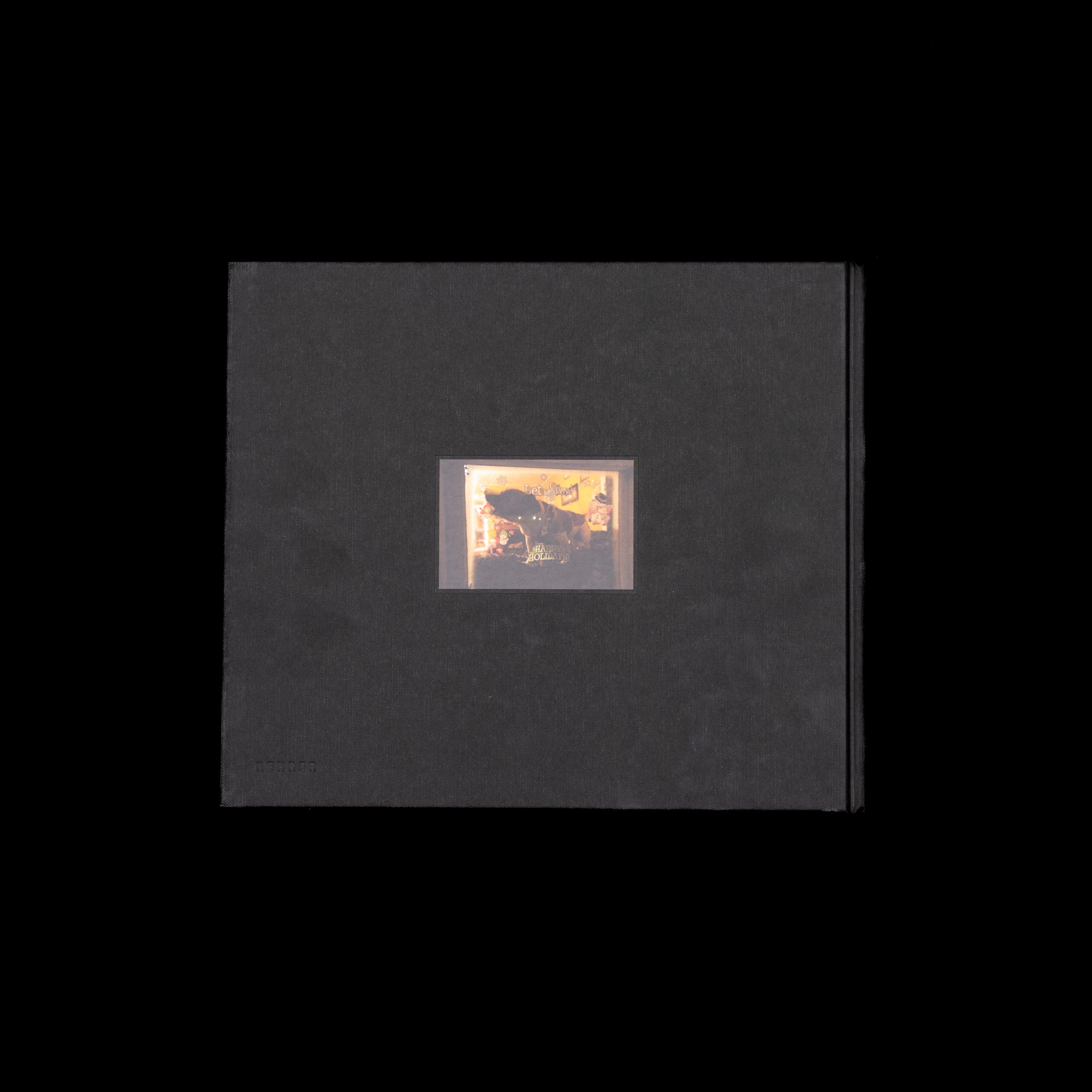GRAVITY IS STRONGER HERE by Phyllis B. Dooney, Kehrer Verlag
Kehrer Verlag, 2017
10.6 × 9 in
200 pages
Hardcover
First edition
Gravity Is Stronger Here is a creative nonfiction montage made from photographs by award-winning photographer Phyllis B. Dooney and docu-poems by critically acclaimed writer Jardine Libaire; it’s a book about looking for America in America. In 2011, Dooney visited Greenville, Mississippi, starting a five-year-long documentary project featuring Halea (who is openly gay) and her dynamic Southern American family.
The Browns dream out loud while fighting the silent undertow of poverty and recurrent domestic narratives. In the cinematic and ambiguous photographs, and in the poems (constructed from interview transcripts and immersion with the family), the participants are candid about addiction, love, the military, domestic abuse, money, gay life, religion, loyalty, conspiracies, and freedom.
Greenville is a key tile in our national mosaic as it represents the American boom town left in the wake of a changing global economy. The book presents us with a place/space where love for a gay daughter and an Evangelical love of God can exist in one mother, violence and tenderness in the same relationship, and hope and hopelessness in the same daily life. These multiple truths are often lost in stories that collapse American families into constituencies.
Gravity provides less an imposed narrative than a consciousness; the subjects are within reach—you can smell the musk, cigarette smoke, meat cooking in the backyard, a magnolia blooming by the door. The experience inside the pages is a nearness, a grazing of shoulders with another’s humanity.
Dooney and Libaire consider the limitations of an ethnographic approach by exploring transparency and collaboration, particularly in Dooney’s first-person introduction, Libaire’s poem Outsiders, and in the music videos online (co-conceived with the Browns). The story is extended by its multimedia components which can be found online at gravityisstrongerhere.com










